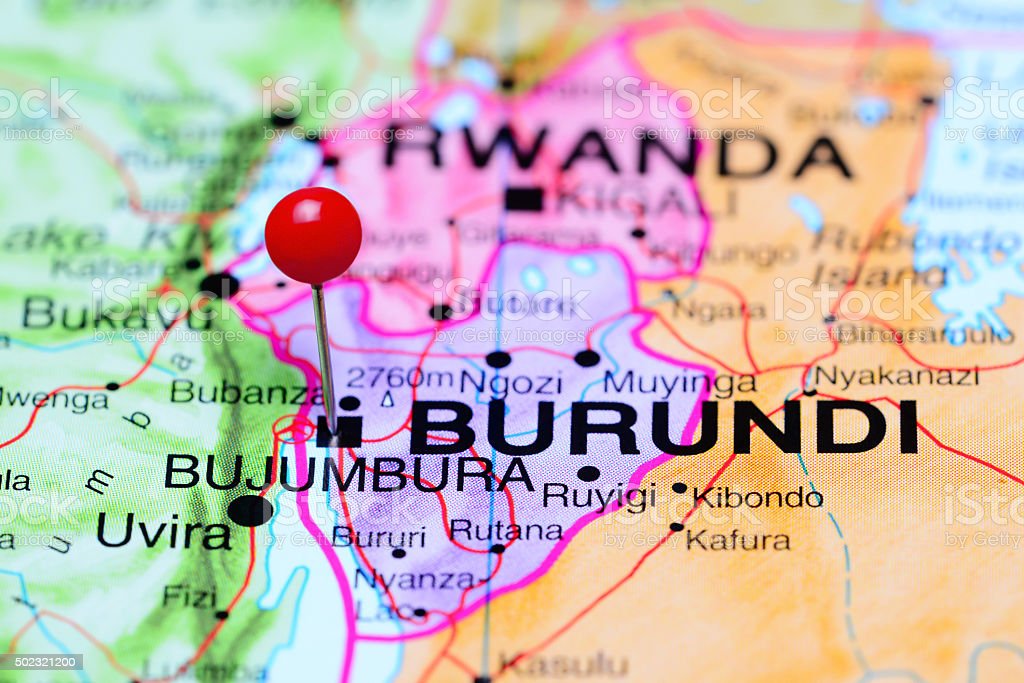Burundi: Fintech landscape and potential in the world’s poorest country

Burundi is the world’s poorest nation, according to gross national income (GNI) per capita. Can fintech boost financial inclusion for the landlocked East African country?
The low-income nation of Burundi, formally colonized by Germany and later Belgium, is officially the world’s poorest nation with a GNI per capita of just $270. In comparison, Qatar is the highest in the Middle East and Africa (MEA) – and one of the highest in the world, Qatar – at $92,080.
Burundi’s second largest city, Gitega, became the country’s political capital in 2019. While the former, Bujumbura, is still the country’s largest and most important commercial city. Due to its legacy from the Belgians, the country’s official language is French (joining other African nations in the francophone circle), along with Kirundi (a local Bantu language of origin). In 2014, English also became an official language.
The economy of Burundi consists mainly of economic aid and agriculture. With the latter, the country’s primary exports are coffee and tea, which account for 90 percent of foreign exchange earnings. Other goods the country produces include stones and metals, carpets, shoes, assembly of imported components for example.
As for financial aid, since 2015 much of this has suffered due to the political situation. Nevertheless, the country receives it from various sources such as the United States, which earlier this year reported that it would give Burundi $400 million in aid after it lifted sanctions.

Burundi is poor and much of it is underdeveloped. Burundi still ranks among the world’s least developed countries (it was ranked 185th out of 189 countries on the Human Development Index (HDI) in 2019), and over 70 percent of the population lives below the poverty line.
As of April this year, less than one percent of the population has been vaccinated against Covid-19. It is also estimated that more than half of the population is chronically food insecure. Much of this can be attributed to a lack of adequate access to healthcare, clean water and general extreme poverty. according to The World Bankless than 12 percent of the country’s population has access to electricity.
Burundi is currently home to 1.74 million people in need of humanitarian assistance, of whom 53 percent are women, 58 percent are children and 15 percent are people living with disabilities. 90 percent of the population depends on agriculture for their livelihood.
While not unique to Africans as a whole when it comes to the unbanked, the numbers are particularly low in Burundi. One source indicates that the figure for the adult population is knocked as low as seven percent.
Despite being overshadowed by the agricultural sector, financial services still play a role in the country’s economy. Some of the major banks include Banque Commerciale du Burundi, Banque de Gestion et de Financement and Banque de Credit de Bujumbura. The central bank is Bank of the Republic of Burundi (or in English Central Bank of Burundi).
In January 2022, the number of mobile connections in Burundi was almost seven million – equivalent to 59 percent of the total population of almost 12 million people. Nevertheless, the mobile money ecosystem in Burundi is nascent, according to Global System for Mobile Communications (GSMA).
The Burundian Agence de Regulation et de Controle des Telecoms requires all SIM cards to be registered and owning multiple SIMs requires authorization as it is generally prohibited. Moreover, mobile phone penetration is just over one percent in the country.
According to the same source, mobile penetration is 31 percent for basic phones and feature phones and over 25 percent for smartphones. In developing countries, studies show that many people will often use their relative’s or friend’s mobile device for payments or even perform basic services such as making calls.

For general economic development to occur anywhere, there should be political stability and policies in place to promote business and economic growth (including attracting foreign direct investment (FDI) and increasing international trade capability).
Unfortunately, the country has had its own challenges that inhibit development, such as civil war. Until recently, the country faced a sanctions list, implemented in 2015 by the US and the EU after Burundi’s then-president Pierre Nkurunziza tried to amend the constitution to give him a third term. Later, violence broke out in the country.
Despite the challenges, there has been a positive development in the country. For example, since the introduction of free primary education in 2005, the gross enrollment rate in primary education reached 115 per cent during the 2020/21 school year without significant variation between provinces, gender or wealth.
In addition, the country has implemented its own economic development strategy called Vision Burundi 2025.
Vision Burundi 2025 is described as an ambitious plan to ensure that the people of Burundi can free themselves from the vicious circles of conflict and poverty, and transform the country into an oasis of peace and prosperity.
So could fintech thrive in the country?

Compared to much of the rest of the world, fintech in Burundi is still at an early stage. However, the potential and value can still be seen.
Due to many in the population needing humanitarian aid, cash and voucher assistance (CVA) can further play a role in the country, as well as mobile money in general. CVAs have doubled since 2016, and in 2019 totaled $5.6 billion globally. However, a large percentage is digitally illiterate (as well as literate) and there is low mobile ownership.
There are at least 350,000 Burundians living abroad and remittances provide a new opportunity for fintech to demonstrate its value to the population. This year, the transaction value in the digital transfer segment is estimated to reach $0.98 million in Burundi.
As with all MEAs, payments and payment technology, as well as mobile transfers and remittances, see the biggest opportunity, and this includes Burundi.
What are some of the solutions in the country?
It is IBB Mobile Plus of Interbank Burundi (IBB). Established in 1993, Interbank Burundi is the first 100 percent private Burundian bank in a market dominated by institutions whose capital was once primarily owned by the Burundian state. Last year, IBB chose The scaleits core banking platform to launch its digital bank – IBB M+, which offers a range of digital banking services to individuals, companies and institutions.
With humanitarian aid, Concern worldwide have sent CVAs via mobile money. GSMA’s Mobile for Humanitarian Innovation program partnered with Ground Truth Solutions to use a human-centered design approach to understand the user journeys of Concern Worldwide’s cash recipients in Burundi and published the findings in a report called Mobile Money Enabled Cash Assistance: User journeys in Burundi.
The report provides insights into how humanitarian organizations and mobile money providers can optimize their cash programming, improve user experience and unlock the wide-ranging benefits of digital and financial inclusion with a focus on Burundi. Therefore, aid as a whole and its digitization, which the pandemic further highlighted its importance, may further show opportunities in Burundi.
There is also Burundi fintech iHello, which is a one-stop platform to manage one’s bank accounts from anywhere in the globe. IHelá gives people access to all their bank accounts online – from checking balances to making payments as well as international money transfers – to name a few.
Despite the nascent fintech environment in the country, the sector can help the nation across many verticals as the country aspires to one day leave its current situation and grow economically.
Yes, there is a lack of infrastructure and challenges to overcome, but fintech has begun to help bring wider financial inclusion to the country. Further economic development – both direct and indirect – and wider digital transformation can hopefully play a role in relieving the country from the low-income ranking.























